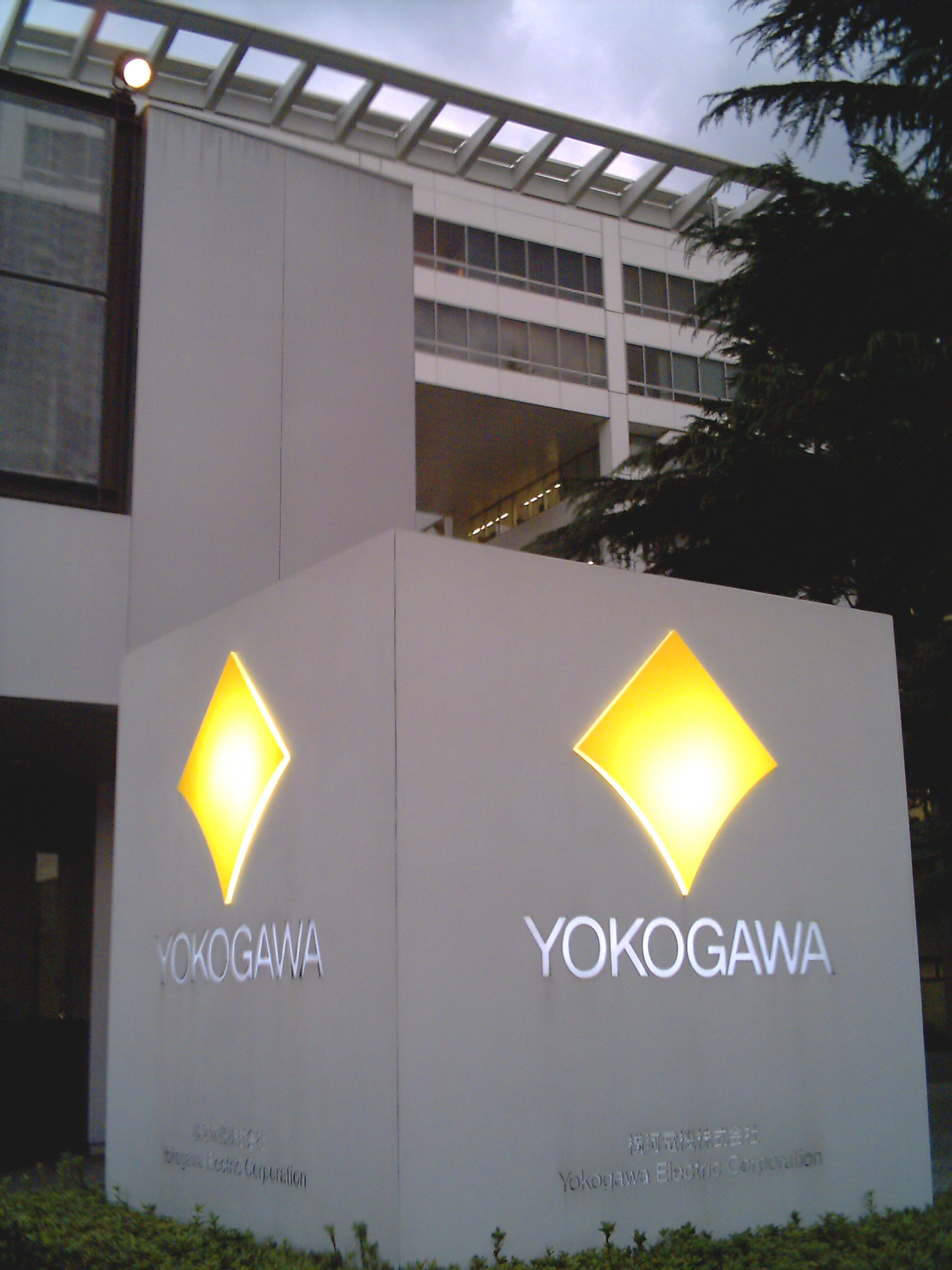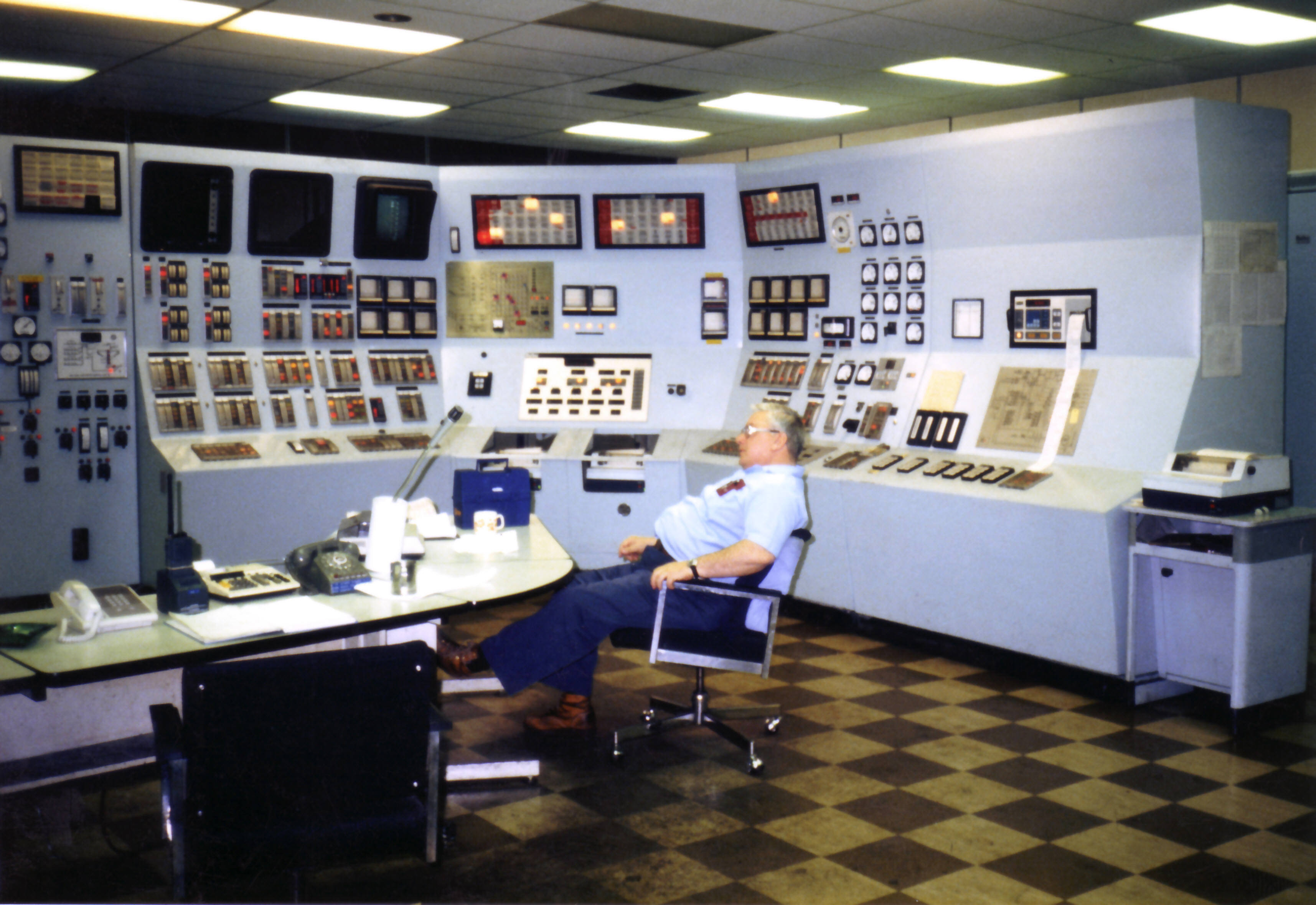|
Yokogawa Electric Corporation
is a Japanese multinational electrical engineering and software company, with businesses based on its measurement, control, and information technologies. It has a global workforce of over 19,000 employees, 84 subsidiary and 3 affiliated companies operating in 55 countries. The company is listed on the Tokyo Stock Exchange and is a constituent of the Nikkei 225 stock index. Yokogawa pioneered the development of distributed control systems and introduced its Centum series DCS in 1975. Some of Yokogawa's most recognizable products are production control systems, test and measurement instruments, pressure transmitters, flow meters, oxygen analyzers, fieldbus instruments, Manufacturing Execution Systems and Advanced Process Control. History Yokogawa traces its roots back to 1915, when Dr. Tamisuke Yokogawa, a renowned architect, established an electric meter research institute in Shibuya, Tokyo. After pioneering the development and production of electric meters in Japan, this ent ... [...More Info...] [...Related Items...] OR: [Wikipedia] [Google] [Baidu] |
Public Company
A public company is a company whose ownership is organized via shares of stock which are intended to be freely traded on a stock exchange or in over-the-counter markets. A public (publicly traded) company can be listed on a stock exchange (listed company), which facilitates the trade of shares, or not (unlisted public company). In some jurisdictions, public companies over a certain size must be listed on an exchange. In most cases, public companies are ''private'' enterprises in the ''private'' sector, and "public" emphasizes their reporting and trading on the public markets. Public companies are formed within the legal systems of particular states, and therefore have associations and formal designations which are distinct and separate in the polity in which they reside. In the United States, for example, a public company is usually a type of corporation (though a corporation need not be a public company), in the United Kingdom it is usually a public limited company (plc), i ... [...More Info...] [...Related Items...] OR: [Wikipedia] [Google] [Baidu] |
Subsidiary
A subsidiary, subsidiary company or daughter company is a company owned or controlled by another company, which is called the parent company or holding company. Two or more subsidiaries that either belong to the same parent company or having a same management being substantially controlled by same entity/group are called sister companies. The subsidiary can be a company (usually with limited liability) and may be a government- or state-owned enterprise. They are a common feature of modern business life, and most multinational corporations organize their operations in this way. Examples of holding companies are Berkshire Hathaway, Jefferies Financial Group, The Walt Disney Company, Warner Bros. Discovery, or Citigroup; as well as more focused companies such as IBM, Xerox, and Microsoft. These, and others, organize their businesses into national and functional subsidiaries, often with multiple levels of subsidiaries. Details Subsidiaries are separate, distinct legal entities f ... [...More Info...] [...Related Items...] OR: [Wikipedia] [Google] [Baidu] |
Distributed Control System
A distributed control system (DCS) is a computerised control system for a process or plant usually with many control loops, in which autonomous controllers are distributed throughout the system, but there is no central operator supervisory control. This is in contrast to systems that use centralized controllers; either discrete controllers located at a central control room or within a central computer. The DCS concept increases reliability and reduces installation costs by localising control functions near the process plant, with remote monitoring and supervision. Distributed control systems first emerged in large, high value, safety critical process industries, and were attractive because the DCS manufacturer would supply both the local control level and central supervisory equipment as an integrated package, thus reducing design integration risk. Today the functionality of Supervisory control and data acquisition (SCADA) and DCS systems are very similar, but DCS tends to be u ... [...More Info...] [...Related Items...] OR: [Wikipedia] [Google] [Baidu] |
SCADA
Supervisory control and data acquisition (SCADA) is a control system architecture comprising computers, networked data communications and graphical user interfaces for high-level supervision of machines and processes. It also covers sensors and other devices, such as programmable logic controllers, which interface with process plant or machinery. Explanation The operator interfaces which enable monitoring and the issuing of process commands, like controller set point changes, are handled through the SCADA computer system. The subordinated operations, e.g. the real-time control logic or controller calculations, are performed by networked modules connected to the field sensors and actuators. The SCADA concept was developed to be a universal means of remote-access to a variety of local control modules, which could be from different manufacturers and allowing access through standard automation protocols. In practice, large SCADA systems have grown to become very similar to distr ... [...More Info...] [...Related Items...] OR: [Wikipedia] [Google] [Baidu] |
Programmable Logic Controller
A programmable logic controller (PLC) or programmable controller is an industrial computer that has been ruggedized and adapted for the control of manufacturing processes, such as assembly lines, machines, robotic devices, or any activity that requires high reliability, ease of programming, and process fault diagnosis. Dick Morley is considered as the father of PLC as he had invented the first PLC, the Modicon 084, for General Motors in 1968. PLCs can range from small modular devices with tens of inputs and outputs (I/O), in a housing integral with the processor, to large rack-mounted modular devices with thousands of I/O, and which are often networked to other PLC and SCADA systems. They can be designed for many arrangements of digital and analog I/O, extended temperature ranges, immunity to electrical noise, and resistance to vibration and impact. Programs to control machine operation are typically stored in battery-backed-up or non-volatile memory. PLCs were first devel ... [...More Info...] [...Related Items...] OR: [Wikipedia] [Google] [Baidu] |
Industrial Automation
Automation describes a wide range of technologies that reduce human intervention in processes, namely by predetermining decision criteria, subprocess relationships, and related actions, as well as embodying those predeterminations in machines. Automation has been achieved by various means including mechanical, hydraulic, pneumatic, electrical, electronic devices, and computers, usually in combination. Complicated systems, such as modern factories, airplanes, and ships typically use combinations of all of these techniques. The benefit of automation includes labor savings, reducing waste, savings in electricity costs, savings in material costs, and improvements to quality, accuracy, and precision. Automation includes the use of various equipment and control systems such as machinery, processes in factories, boilers, and heat-treating ovens, switching on telephone networks, steering, and stabilization of ships, aircraft, and other applications and vehicles with reduced human in ... [...More Info...] [...Related Items...] OR: [Wikipedia] [Google] [Baidu] |
Manufacturing Execution Systems
Manufacturing execution systems (MES) are computerized systems used in manufacturing to track and document the transformation of raw materials to finished goods. MES provides information that helps manufacturing decision-makers understand how current conditions on the plant floor can be optimized to improve production output. MES works as real-time monitoring system to enable the control of multiple elements of the production process (e.g. inputs, personnel, machines and support services). MES may operate across multiple function areas, for example management of product definitions across the product life-cycle, resource scheduling, order execution and dispatch, production analysis and downtime management for overall equipment effectiveness (OEE), product quality, or materials track and trace. MES creates the "as-built" record, capturing the data, processes and outcomes of the manufacturing process. This can be especially important in regulated industries, such as food and bever ... [...More Info...] [...Related Items...] OR: [Wikipedia] [Google] [Baidu] |
Fieldbus
Fieldbus is the name of a family of industrial computer networks used for real-time distributed control. Fieldbus profiles are standardized by the International Electrotechnical Commission (IEC) as IEC 61784/61158. A complex automated industrial system is typically structured in hierarchical levels as a distributed control system (DCS). In this hierarchy the upper levels for production managements are linked to the direct control level of programmable logic controllers (PLC) via a non-time-critical communications system (e.g. Ethernet). The fieldbus links the PLCs of the direct control level to the components in the plant of the field level such as sensors, actuators, electric motors, console lights, switches, valves and contactors and replaces the direct connections via current loops or digital I/O signals. The requirement for a fieldbus are therefore time-critical and cost sensitive. Since the new millennium a number of fieldbuses based on Real-time Ethernet have been establish ... [...More Info...] [...Related Items...] OR: [Wikipedia] [Google] [Baidu] |
Production Control System
Within supply chain management and manufacturing, production control is the activity of monitoring and controlling any particular production or operation. Production control is often run from a specific control room or operations room. With inventory control and quality control, production control is one of the key functions of operations management. Overview Production control is the activity of monitoring and controlling a large physical facility or physically dispersed service. It is a "set of actions and decision taken during production to regulate output and obtain reasonable assurance that the specification will be met."S. N. Ghosh (ed.) ''Cement and Concrete Science & Technology.'' 1991. p. 419 The American Production and Inventory Control Society, nowadays APICS, defined production control in 1959 as: :''Production control is the task of predicting, planning and scheduling work, taking into account manpower, materials availability and other capacity restrictions, and cost ... [...More Info...] [...Related Items...] OR: [Wikipedia] [Google] [Baidu] |
International Society Of Automation
The International Society of Automation (ISA), formerly known as The Instrumentation, Systems, and Automation Society, is a non-profit technical society for engineers, technicians, businesspeople, educators and students, who work, study or are interested in automation and pursuits related to it, such as instrumentation. It was originally known as the Instrument Society of America. The society is more commonly known by its acronym, ISA, and the society's scope now includes many technical and engineering disciplines. ISA is one of the foremost professional organizations in the world for setting standards and educating industry professionals in automation. Instrumentation and automation are some of the key technologies involved in nearly all industrialized manufacturing. Modern industrial manufacturing is a complex interaction of numerous systems. Instrumentation provides regulation for these complex systems using many different measurement and control devices. Automation provides the ... [...More Info...] [...Related Items...] OR: [Wikipedia] [Google] [Baidu] |
Distributed Control System
A distributed control system (DCS) is a computerised control system for a process or plant usually with many control loops, in which autonomous controllers are distributed throughout the system, but there is no central operator supervisory control. This is in contrast to systems that use centralized controllers; either discrete controllers located at a central control room or within a central computer. The DCS concept increases reliability and reduces installation costs by localising control functions near the process plant, with remote monitoring and supervision. Distributed control systems first emerged in large, high value, safety critical process industries, and were attractive because the DCS manufacturer would supply both the local control level and central supervisory equipment as an integrated package, thus reducing design integration risk. Today the functionality of Supervisory control and data acquisition (SCADA) and DCS systems are very similar, but DCS tends to be u ... [...More Info...] [...Related Items...] OR: [Wikipedia] [Google] [Baidu] |
Nikkei Inc
Nikkei can refer to: *, abbreviated , Nikkei, a large media corporation in Japan *, abbreviated , Nikkei, a major business newspaper published in Japan *, a Japanese stock market index, published by ''Nihon Keizai Shimbun'' *, often simply ''Nikkei,'' people in the Japanese diaspora *, a Japanese-language newspaper published in São Paulo, Brazil {{disambig ... [...More Info...] [...Related Items...] OR: [Wikipedia] [Google] [Baidu] |






